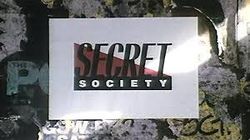Difference between revisions of "Secret Society"
(adjusting citations) |
|||
| Line 12: | Line 12: | ||
==Origins== | ==Origins== | ||
| − | In November 1985 the Scottish investigative journalist [[Duncan Campbell]] was commissioned by [[BBC Scotland]] to present and research a six part, half-hour documentary series called ''Secret Society'', produced by Brian Barr.<ref name=BBCOct13> | + | In November 1985 the Scottish investigative journalist [[Duncan Campbell]] was commissioned by [[BBC Scotland]] to present and research a six part, half-hour documentary series called ''Secret Society'', produced by Brian Barr.<ref name=BBCOct13>https://www.bbc.co.uk/news/uk-scotland-glasgow-west-24735849</ref> |
==Zircon Affair== | ==Zircon Affair== | ||
| − | Campbell had planned to use an episode of ''Secret Society'' to reveal the existence of Zircon, but found while researching the programme in the summer of 1986 that the head of the [[Public Accounts Committee (United Kingdom)|Public Accounts Committee]] (PAC), [[Robert Sheldon]], knew nothing of the project.<ref name="Aldrich, 2011, 459" > | + | Campbell had planned to use an episode of ''Secret Society'' to reveal the existence of Zircon, but found while researching the programme in the summer of 1986 that the head of the [[Public Accounts Committee (United Kingdom)|Public Accounts Committee]] (PAC), [[Robert Sheldon]], knew nothing of the project.<ref name="Aldrich, 2011, 459" >Aldrich, 2011, pape 459}}</ref> The Public Accounts Committee is a [[Select Committee (Westminster System)|select committee]] of the [[House of Commons of the United Kingdom|House of Commons]], responsible for overseeing government expenditures.<ref name=BBC-history/> It had been agreed between Parliament and the British government that expensive military projects should be subject to scrutiny by the committee, and Campbell felt that Sheldon's ignorance of the Zircon project was evidence of the violation of this agreement.<ref name=BBC-history>https://web.archive.org/web/20120905221545/http://www.bbc.co.uk/historyofthebbc/resources/bbcandgov/pdf/zircon.pdf</ref><ref name=obituary-milne>https://www.bbc.co.uk/news/uk-20967247</ref> The concealment of Zircon from the committee mirrored the parliamentary secrecy over a previous defence project, the [[Chevaline]] programme to enhance the [[UK Polaris programme|Polaris nuclear missile]].<ref name="Aldrich, 2011, 459"/> The previous head of the PAC, [[Joel Barnett, Baron Barnett|Lord Barnett]], had been recently appointed the BBC Vice-Chairman.<ref name=BBC-history/> Barnett had withdrawn from a planned interview with Campbell for the programme after his BBC appointment, upset at the nature of the questioning that Sheldon had faced, who had accused Campbell of setting him up.<ref name=BBC-history/> The Zircon affair was publicly revealed by ''[[The Observer]]'' on 18 January 1987, with the headline "BBC Gag on £500m Defence secret".<ref name="Wilkinson2009">Nicholas John Wilkinson, Secrecy and the Media: The Official History of the United Kingdom's D-Notice System - https://books.google.com/books?id=ZIB8AgAAQBAJ&pg=PA415, ISBN 978-1-134-05254-7</ref> An [[injunction]] was obtained by the Attorney General on January 21 restraining Campbell from talking or writing about the contents of the episode.<ref name="Bradley & Ewing">A.W. Bradley, Constitutional and Administrative Law, 1997, publisher: Addison Wesley Longman, page 652</ref> |
==Censorship== | ==Censorship== | ||
At least one episode, about [[Margaret Thatcher]]'s secret committees, was never broadcast.<ref name="ug716">http://www.unwelcomeguests.net/716</ref> | At least one episode, about [[Margaret Thatcher]]'s secret committees, was never broadcast.<ref name="ug716">http://www.unwelcomeguests.net/716</ref> | ||
| + | |||
{{SMWDocs}} | {{SMWDocs}} | ||
| + | |||
==References== | ==References== | ||
{{reflist}} | {{reflist}} | ||
Latest revision as of 21:49, 30 January 2021
(TV programme) | |
|---|---|
 | |
| Type | file of unspecified type |
| Author(s) | Unknown |
| Local copy | Broken Link: [[{{{local}}}]] |
| Bought by the BBC, but at least one episode was never broadcast. This TV series lead to the Zircon Affair. | |
Not to be confused with the concept, Secret society.
Secret Society was a BBC TV series which lead to the Zircon Affair.
Contents
Origins
In November 1985 the Scottish investigative journalist Duncan Campbell was commissioned by BBC Scotland to present and research a six part, half-hour documentary series called Secret Society, produced by Brian Barr.[1]
Zircon Affair
Campbell had planned to use an episode of Secret Society to reveal the existence of Zircon, but found while researching the programme in the summer of 1986 that the head of the Public Accounts Committee (PAC), Robert Sheldon, knew nothing of the project.[2] The Public Accounts Committee is a select committee of the House of Commons, responsible for overseeing government expenditures.[3] It had been agreed between Parliament and the British government that expensive military projects should be subject to scrutiny by the committee, and Campbell felt that Sheldon's ignorance of the Zircon project was evidence of the violation of this agreement.[3][4] The concealment of Zircon from the committee mirrored the parliamentary secrecy over a previous defence project, the Chevaline programme to enhance the Polaris nuclear missile.[2] The previous head of the PAC, Lord Barnett, had been recently appointed the BBC Vice-Chairman.[3] Barnett had withdrawn from a planned interview with Campbell for the programme after his BBC appointment, upset at the nature of the questioning that Sheldon had faced, who had accused Campbell of setting him up.[3] The Zircon affair was publicly revealed by The Observer on 18 January 1987, with the headline "BBC Gag on £500m Defence secret".[5] An injunction was obtained by the Attorney General on January 21 restraining Campbell from talking or writing about the contents of the episode.[6]
Censorship
At least one episode, about Margaret Thatcher's secret committees, was never broadcast.[7]
References
- ↑ https://www.bbc.co.uk/news/uk-scotland-glasgow-west-24735849
- ↑ a b Aldrich, 2011, pape 459}}
- ↑ a b c d https://web.archive.org/web/20120905221545/http://www.bbc.co.uk/historyofthebbc/resources/bbcandgov/pdf/zircon.pdf
- ↑ https://www.bbc.co.uk/news/uk-20967247
- ↑ Nicholas John Wilkinson, Secrecy and the Media: The Official History of the United Kingdom's D-Notice System - https://books.google.com/books?id=ZIB8AgAAQBAJ&pg=PA415, ISBN 978-1-134-05254-7
- ↑ A.W. Bradley, Constitutional and Administrative Law, 1997, publisher: Addison Wesley Longman, page 652
- ↑ http://www.unwelcomeguests.net/716